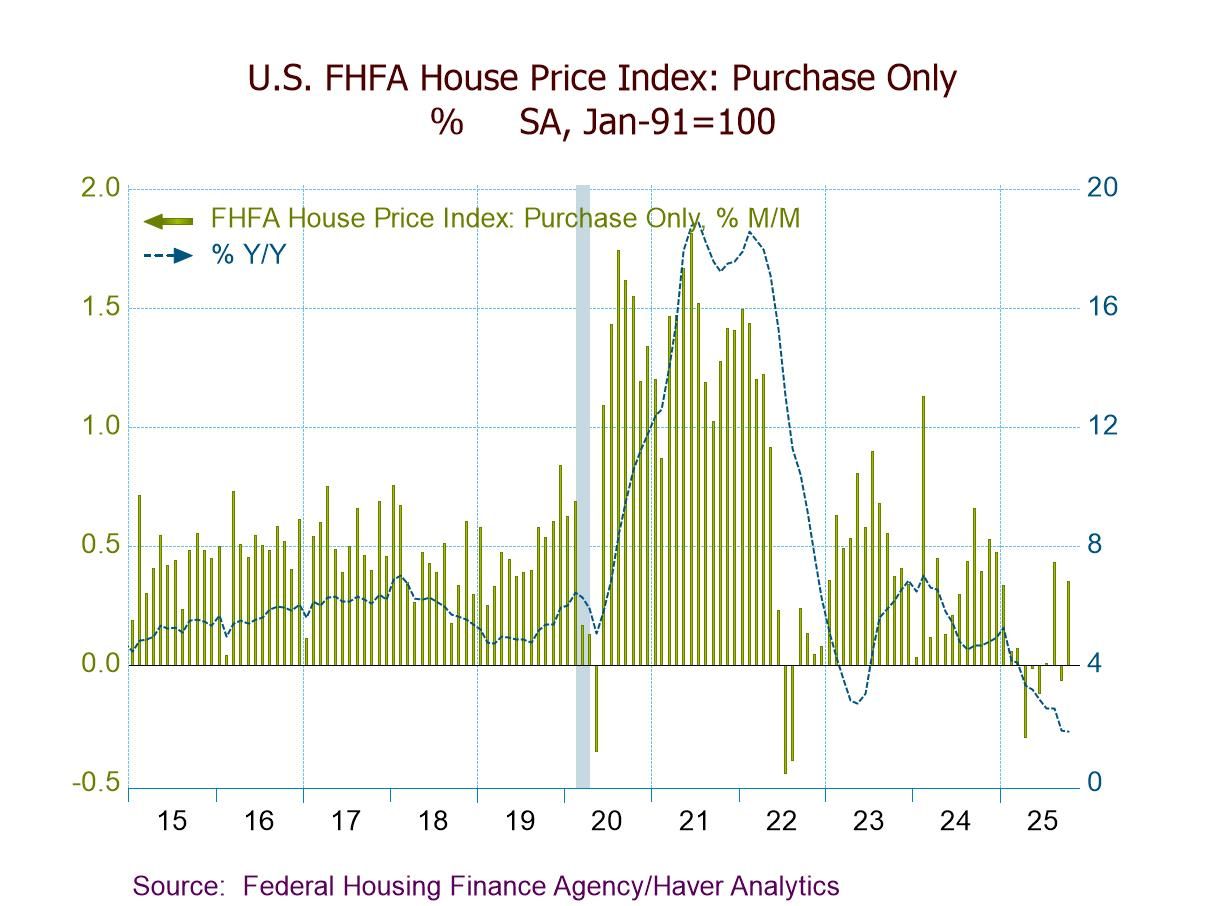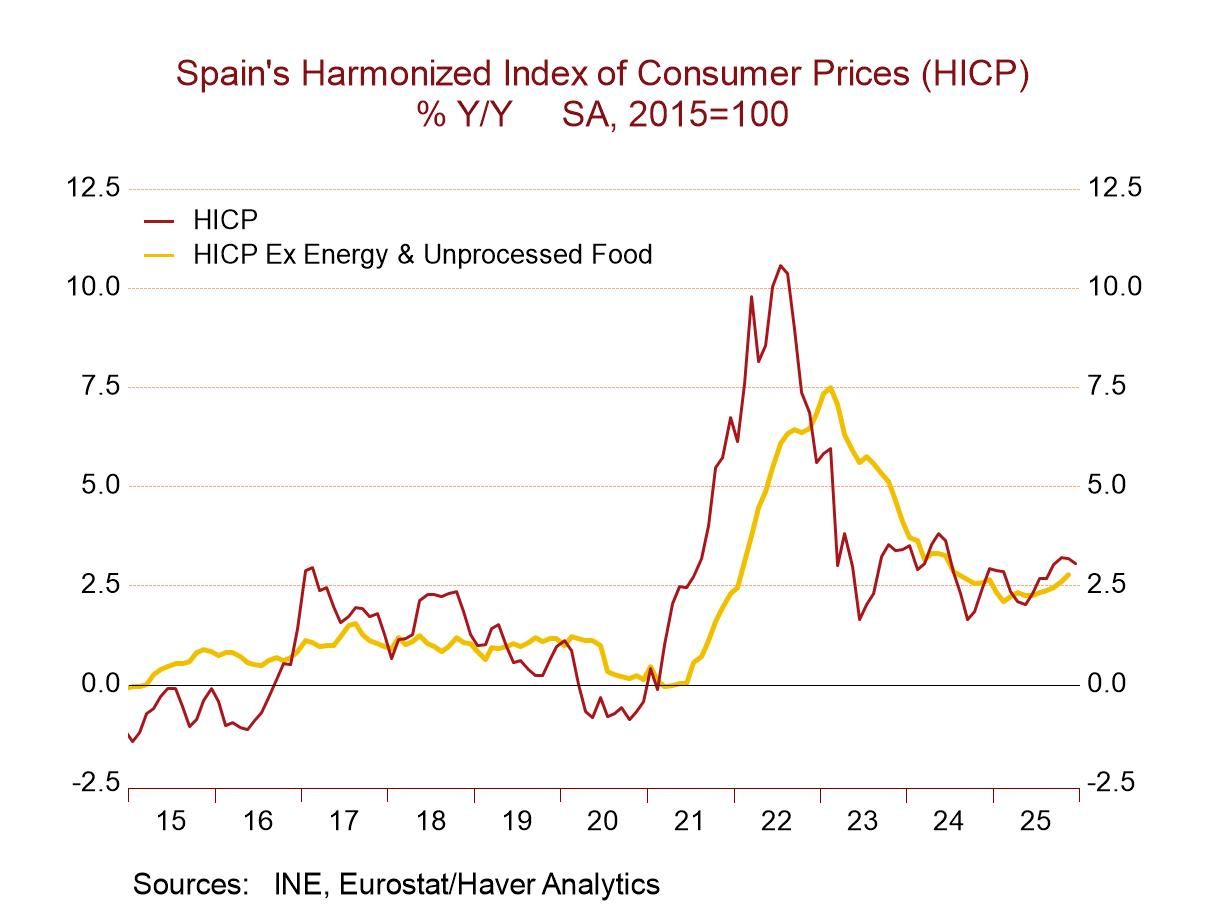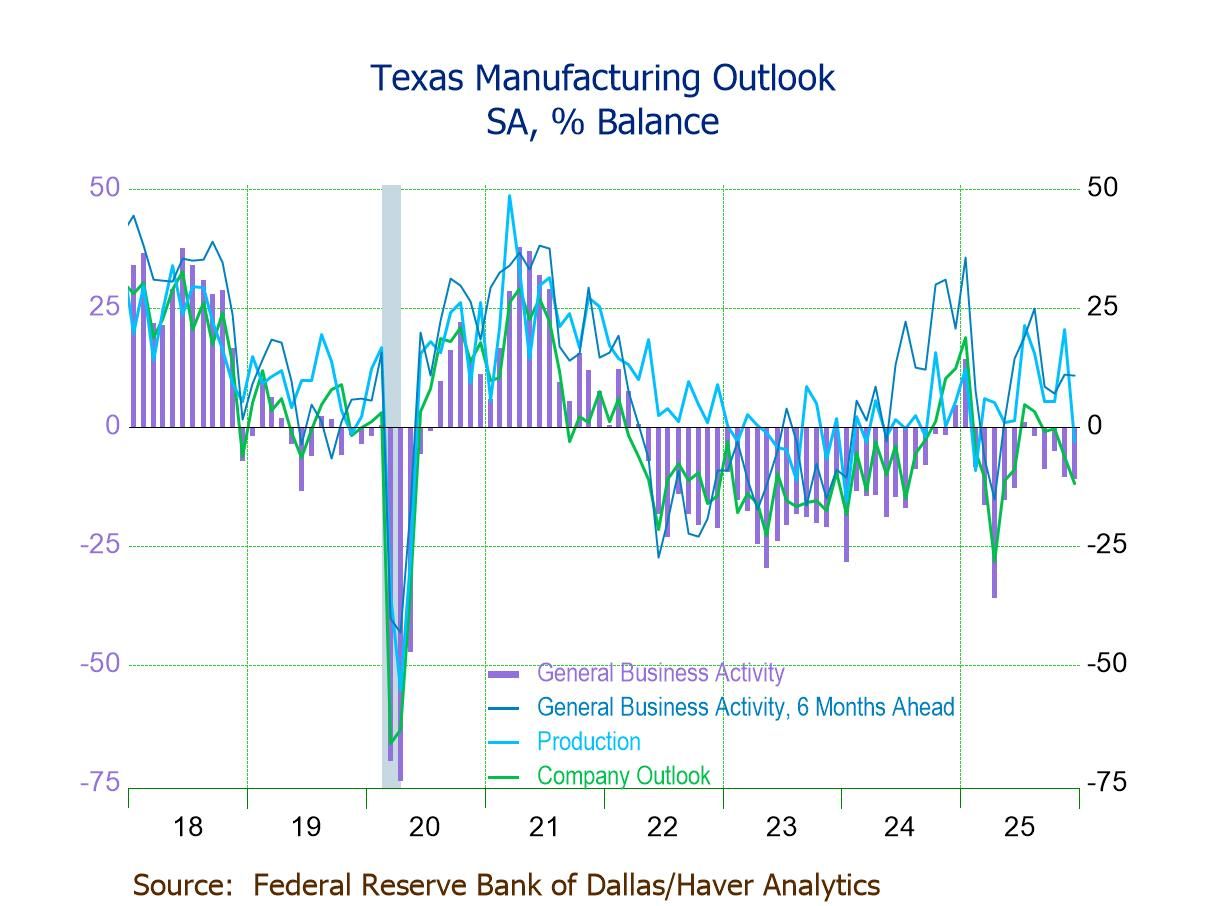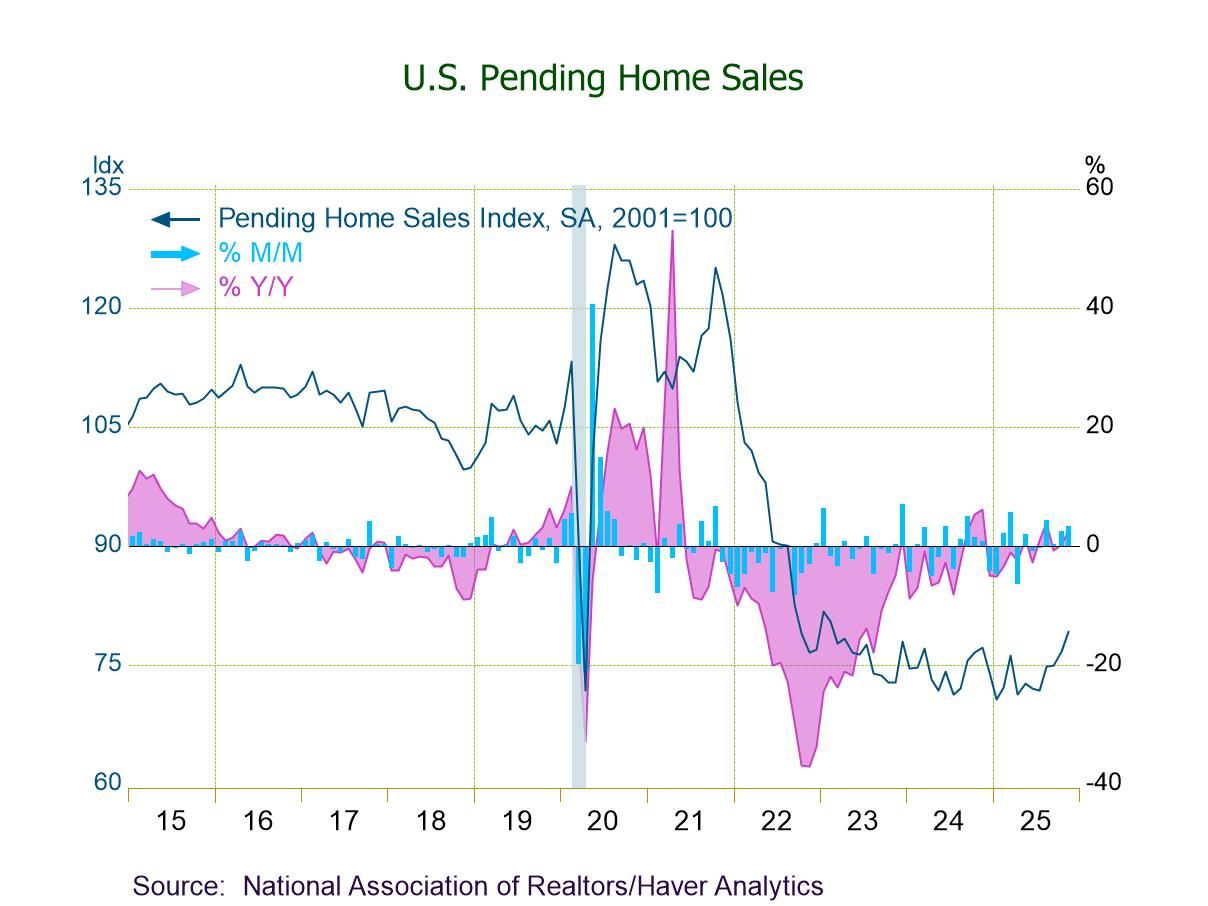 Global| Jul 13 2010
Global| Jul 13 2010Japan Consumer Confidence Continues To Edge Higher
Summary
Consumer confidence in Japan edged higher in June to 43.6 from 43.0, as Japan's index of industrial output also made a surprise advance. Expected income growth and employment and the willingness to buy durable goods each improved on [...]
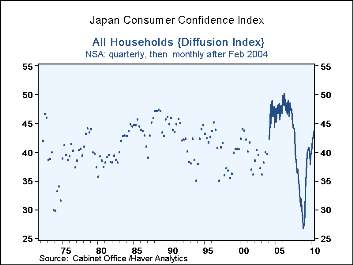 Consumer confidence in Japan edged higher in June to 43.6 from 43.0, as Japan's index of industrial output also made a surprise advance. Expected income growth and employment and the willingness to buy durable goods each improved on the month.
Consumer confidence in Japan edged higher in June to 43.6 from 43.0, as Japan's index of industrial output also made a surprise advance. Expected income growth and employment and the willingness to buy durable goods each improved on the month.
The consumer confidence index itself, a diffusion reading, rose to the 79th percentile of its range of values since 2004. That also corresponds to a ranking in the queue in the 53rd percentile. The reading stand higher in the range than it ranks in the queue. Over the broader sample that goes back to 1982 and is a quarterly survey this month's reading stands in the 46th percentile of the enlarged queue.
It is clear that Japan's consumer reading is on the mend. It is not certain that the improvement will continue. Compared to the range of values that this index actually has spanned the current reading is well up and out of the danger zone. But when placed in a ordered queue of historic readings the standing is more middling. Just below the 50th percentile in the broad range and a bit above it since 2004.
All this corresponds to what we do know about Japan. It is on the mend but it is mending slowly. The economy is no longer as beleaguered as it was. Consumer continues to gain in confidence as progress is edging ahead. But with the new Prime Minister suffering a mid term election set-back Japan's new agenda for debt reduction may have a higher hurdle to go over. More profoundly Japan could be set for another short stay in office by the new Prime Minister. A set back in the course of action would not be helpful, But it will take another month for us to get the next reading on how consumers feel about this latest breaking news.
buy DurGds Value of Assets
Robert Brusca
AuthorMore in Author Profile »Robert A. Brusca is Chief Economist of Fact and Opinion Economics, a consulting firm he founded in Manhattan. He has been an economist on Wall Street for over 25 years. He has visited central banking and large institutional clients in over 30 countries in his career as an economist. Mr. Brusca was a Divisional Research Chief at the Federal Reserve Bank of NY (Chief of the International Financial markets Division), a Fed Watcher at Irving Trust and Chief Economist at Nikko Securities International. He is widely quoted and appears in various media. Mr. Brusca holds an MA and Ph.D. in economics from Michigan State University and a BA in Economics from the University of Michigan. His research pursues his strong interests in non aligned policy economics as well as international economics. FAO Economics’ research targets investors to assist them in making better investment decisions in stocks, bonds and in a variety of international assets. The company does not manage money and has no conflicts in giving economic advice.



